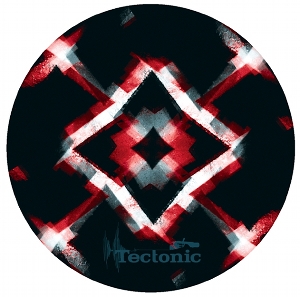Pinch & Roska Shoulda Rolla
It’s interesting that Roska has washed up on Tectonic’s shore. Five years ago, his coolly […]

It’s interesting that Roska has washed up on Tectonic’s shore. Five years ago, his coolly dangerous, itchy-legged broken house sent significant currents into the UK music world. Alongside the work of artists like Hardhouse Banton and Geeneus, the music was eventually dubbed UK funky, a sound which brought an incitement to body movement that was instant and irrepressible. In its wake, dubstep became more fractured and uncontainable than ever, never to be the same again. Since then, Roska’s rhythmic mission has increasingly gravitated toward big-room sounds, and its skipping agility has mostly been jettisoned in favor of ear-crunching roundedness and faster tempos. Interestly enough, it now offers something closer to Pinch‘s obtuse angles and industrial coldness.
On “Shoulda Rolla,” both producers let their hard-steel rhythms soften into a flawlessly low-down dubstep cut that could have been made five years ago. (In fact, the collaboration is a vintage one, but it only dates back about a year.) As tearing wipes of caustic bass pull like velcro across a beat composed of deftly sequenced yet amateurish samples, one realizes that it recalls the seminal debut of Skream’s Skreamizm EP series. It’s only Pinch’s subtle granulations and windswept atmospherics that key “Shoulda Rolla” into a more up-to-date timeframe, resulting in a track that slides like the dubstep classics of yore while surely delighting those who still crave that old skank.
“Asbestos”—a Roska solo effort—is a more mobile and agile stepper; it’s still pleasingly dated for the proper dubstep heads, though ardent modernizers will probably find it frustrating. Synths whizz electrically like a broken alarm over the sub hum and missile-silo ambience. Garage kicks are processed into a pristine, synthetic repetition that doesn’t bounce so much as stutter; the composition is retrospectively reminiscent of ’07-’08 dubstep this time, particularly both Benga’s cruel strength and Headhunter’s use of techno samples in a punishing half-step. This isn’t as forward-thinking as Tectonic’s output can be, but it’s hard to argue that Pinch’s label isn’t, as ever, an inspiring example of a constant artistic and curatorial prowess.

